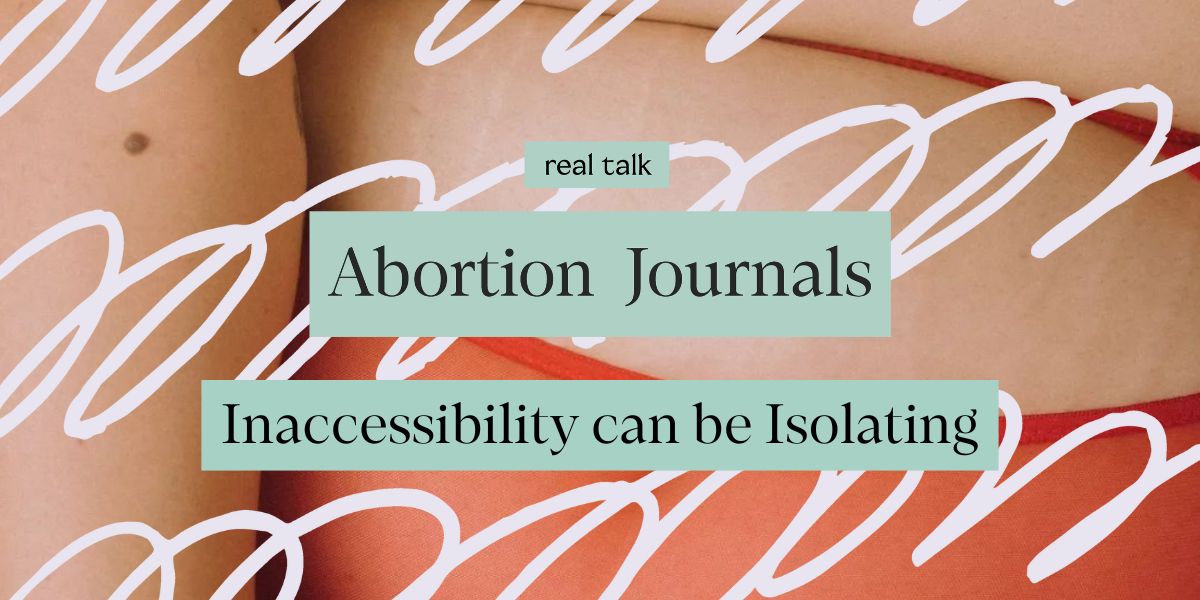I didn’t know I experienced pregnancy loss. Here’s what I learned

Arielle Spiegel is the founder of CoFertility, an online hub for every fertility question, answered. She's telling us about her journey experiencing pregnancy loss.
There it was: “YES +” in capital letters on the pregnancy test I had placed on the bathroom sink. Back then, I was still investing in expensive digital tests. Ah, those were the days...when I had no idea how long my fertility journey would really last, or how much money I was probably wasting on those things.
pregnancy-tests
Am I pregnant or not?
This was the summer of 2017, about five months into us trying to get pregnant. I had been told by my gynecologist to “have fun and try for six months” before coming back. After three months off birth control, we moved on from the “having fun” stage and into the world of ovulation tests, fertility tracking apps, and first-thing-in-the-morning temperature checks. Before this, I had no idea that there were only a few days per cycle when I could possibly get pregnant. Needless to say, this was way before I founded CoFertility, a site that aims to un-complicate the fertility journey.
I was home alone that weekend while my husband was out of town, so I FaceTimed him to share the exciting news—not exactly how I pictured this moment, but figured I’d roll with it. I took our dog out for a walk, picked up some Chinese take-out, came home, and took a second test. I squeezed out every drop of pee left in me, only to see a “NO -” appear. I was slightly worried, but mostly just confused. Maybe I just hadn’t peed enough?
When I took a third test the following morning and it was also negative, I knew something was up. I went in to see my doctor for a blood test just to be sure, which confirmed I wasn’t pregnant. She told me I had probably experienced a chemical pregnancy; or in her words, “your body thought you were pregnant for a minute, but you weren’t.”
I was frustrated and more confused than ever. How could my body be pregnant one second and not the next, especially when it seemed like we were doing everything right? I had never heard of a chemical pregnancy before, but my doctor told me to just keep trying. What followed was even more timed intercourse, and eventually, a return to my gynecologist.

Lesson 1: Loss is loss, no matter how early.
I actually hadn’t done much research on chemical pregnancies since I was told I had had one. The whole thing felt like a weird fluke, and I was working a super demanding job and just didn’t have much time to dig for information. Plus, like most women, I put my trust in my doctor. But when I returned and aired my concerns to her, she explained that I had basically experienced a very early miscarriage. This hit me like a pile of bricks—only once I heard the word, “miscarriage,” did I begin to really process what had happened and grieve. We had the opportunity to have a baby, and we lost it. Even though it was only for a moment, I was still crushed.
What followed was a slew of tests that confirmed I had a septum in my uterus that needed to be removed. Not wanting to mess around, I moved on to a reproductive endocrinologist. Based on my workup, he told me, once the septum was removed, I should have no trouble getting pregnant and staying that way.
Lesson 2: Sometimes, there is no “why.”
Turned out, neither of those things were true. After my septum was removed, we started with timed intercourse, then added in some medication. When none of that worked, we moved onto a few rounds of IUI. I experienced another chemical pregnancy after my second IUI, and this time, I knew exactly what had happened. I grieved HARD. By this point, it had been almost a year since my first chemical pregnancy and I was losing steam. Why was this happening to us? We were good, kind people who would make amazing parents. We were trying so hard and failing. Things just felt beyond unfair.
After our third IUI, along with some careful deliberation, a second opinion, and getting our ducks in a row, we decided to pursue IVF. Unfortunately, with chemical pregnancies, they end too early to test genetic material. So while my husband and I had both previously undergone genetic testing that came back normal/without any overlaps, it was possible that some abnormality was occurring with the embryos that we were creating. IVF would at least give us some answers, and hopefully rule out the possibility of transferring an embryo that was poor quality or had any genetic issues.
Our first round of IVF resulted in 2 normal embryos. I know we’re lucky to have those when some people don’t have any, but given that we had retrieved 18 eggs and 15 of them initially fertilized, this was gutting. Since we knew we wanted more than one child, we decided to do another round to create more embryos, which resulted in another 2. With 4 embryos in the bank, we moved forward with our first transfer attempt. Sure enough, another chemical pregnancy.
With three chemical pregnancies under my belt at this point, including this one with a certified genetically normal embryo, I knew there had to be something wrong with me. But what?
Lesson 3: Do your own research.
Still “unexplained,” the lack of information was killing me. My husband and I both looked great on paper, and there was no scientific explanation for our losses. We decided to take matters into our own hands. After a ton of Googling, sifting through tons of resources—some helpful, some garbage—we decided to explore reproductive immunology. Essentially, this is the (somewhat controversial) science behind why your body might “attack” an embryo. And we found out some interesting things about my predisposition to blood clots and circulatory issues.
Some might say if you look hard enough for anything, you’ll find something. Maybe these blood flow issues contributed to my losses, maybe not. But I was willing to try this approach if it could bring me closer to our baby. We did some additional testing with our RE, too. I was not about to transfer another embryo of my precious few left without checking for any cause that could contribute to another loss. All of those tests came back negative/normal.
Lesson 4: Expect curveballs.
Right around this time, we moved from New York to Boston, and together with our new RE and our reproductive immunologist, we came up with a plan to prepare for our next IVF transfer: basically, treating me as if I had endometriosis (which had never been confirmed via laparoscopy, but I had experienced some symptoms that may have indicated it) combined with our immunology protocol.
Of course, life had other plans. I wound up getting spontaneously pregnant on my own(!), literally the week we moved. There were some complications—the embryo placement wasn’t ectopic, but close—but we made it to our 8-week ultrasound. We couldn’t believe it.
Unfortunately, at that ultrasound, the scan showed no heartbeat. This time, it wasn’t a chemical pregnancy. It was a full-on “missed miscarriage,” or pregnancy loss/lack of fetal development, without the usual miscarriage symptoms. I remember leaving the maternity ward, after pushing through double doors filled with baby photos, as my eyes welled up with tears.
This was the worst loss experience yet. I had experienced terrible grief with all the previous losses, but with this one, it just felt different. The fact that we had gotten pregnant naturally right after moving had felt like some divine power was rewarding us for the change of scenery, energy, and pace of our new roots in Boston. To top it off, I still felt completely pregnant, with all the symptoms.
I had a D&C the following day to remove the pregnancy. My sister’s wedding was only a week later, and I needed to begin to move on and actually move forward with our planned embryo transfer protocol. I needed something else to look forward to and work towards.

Lesson 5: Every storm can result in a rainbow.
We began our IVF transfer protocol and, I’ll tell you, it was a doozy. Almost four months of medication, injections, and IV drips is not for the faint of heart. And after all of our losses, I was just so convinced that this wouldn’t work and would all be for nothing.
I was wrong. Today, I am 32 weeks pregnant with our son, who began as one of our embryos from our first round of IVF. In the early stages of my pregnancy, I was filled with tons of anxiety, because that’s what years of loss will do to you. Loss teaches you to expect the worst. You’re constantly waiting for the other shoe to drop.
Some days, I’m still in denial. And I think I will be until that healthy baby is in my arms. I wouldn’t wish pregnancy loss upon anybody; it’s literally the worst experience of your life, every time you experience it. If you’ve experienced pregnancy loss, I am so, so sorry. But these experiences have made me stronger, they’ve inspired CoFertility, and they’ve taught me tons of lessons along the way.
Meet the Stix Tests
ovulation-tests
![]()
pregnancy-tests
Keep Reading

Navigating birth control and sexual health in a larger body
Apr 23

In My Words: The power of shooting your shot
Apr 18

What's going on with the Arizona abortion ban from 1864?
Apr 11










